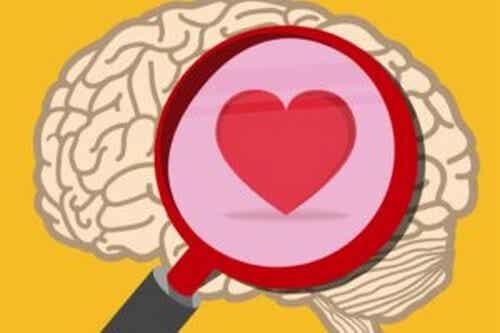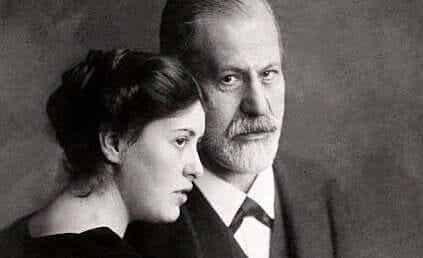Of all the skills that allow the individual to develop as a social being, empathy is one of the most important. Improving it, therefore, is almost a necessity.

Last update: 25 March, 2021
Empathy allows us to develop as social beings, as it helps us understand others and communicate. Thanks to this ability we understand that there are also different perspectives from ours and that each person sees the world based on their experiences. It therefore helps us create stronger bonds and, in some ways, makes us more cautious in judging others. For all these reasons, it is of great importance to develop empathy.
Thanks to it, it will be easier to understand how others feel, and at the same time express our emotions. Empathy is an art, a skill that allows us to connect with other people and strengthen our bonds.
Sympathizing is not empathizing
First of all it is important to distinguish sympathy from empathy, especially from a psychological point of view. According to the Garzanti dictionary, sympathy is a "feeling of attraction or instinctive adhesion" while empathy is the "ability to identify with another person to the point of grasping their thoughts and moods".
This difference is certainly important. In fact, we are often convinced that we have empathized with someone when, in reality, we are not. Being kind and nice to others doesn't make us empathetic; to reach this state it is important to go further, it is necessary to try to understand the other person, from his point of view and not from ours.
Develop empathy to resolve conflicts
Thanks to the emotional and cognitive connection that this ability allows us, we can resolve conflicts peacefully. By understanding others, it will be easier not to get carried away by the impulse.
To empathize means to understand, for example, why a person feels unhappy after losing their job or elated when they find out they are about to have a child. Usually, relating events to our experiences is a good mechanism of empathy.
There are some exercises that allow us to develop this ability. They are simple to perform and can significantly help us improve our relationship with the environment.
How to develop empathy?
First of all, it is important to understand that the our personal development and our progress can be highly dependent on emotional intelligence. Therefore, before trying to put these exercises into practice, we should try to understand the importance of developing this type of intelligence.
Next, we could start practicing the following exercises.
1. Improve listening skills
To understand others, it is very important to know how to listen; but listening does not mean hearing what we are told. To really listen we must pay full attention to the non-literal message and non-verbal communication.
To improve listening skills it is also very important:
- Don't interrupt.
- Don't constantly express our opinion.
- Listen to the message without judging.
- Pay attention to the not verbal communication.
This last point is the most important, as it gives us relatively easy clues about what the person in front of us really feels.
Pragmatic information - be it gestural, prosodic or the person's system of beliefs and opinions - largely determines our way of communicating and the success of the exchange between two people.
For this reason it is important try to understand how the other person's emotional system works, through the interpretation of his non-strictly verbal communication schemes. In other words, the way something is said is often more important than the content of the message.
2. Develop empathy by choosing calm
Learning to stay calm helps us develop empathy: without tranquility, our listening capacity can be reduced.
If we want to improve our listening skills, it is important to start from a relaxed state of mind and open to different forms of communication. In this sense, practices such as breath control or meditation can be of great use.
3. Focus on patience
Patience is also closely linked to empathy. To understand the cognitive and emotional processes of the environment around us, we need time and we must use it with patience.
Perhaps at first we may subconsciously refuse to understand the other, but with a little patience, the chances of reaching this state will be greater.
4. Understanding emotions, not mere information
This point is essential if we are to develop empathy successfully. As we have already seen, empathy can, at times, have little to do with the literal message; in reverse, it tends to be more emotionally related.
In this sense, the more we care about the emotions of others, the more empathic we can be. For example, faced with a statement like “yesterday I got a promotion at work” a person with little empathy or little interest might ask “What are you going to do now? Will you work more hours? ".
The most precious gift we can give to others is our presence. When our attention embraces the people we love, they blossom like flowers.
-Thich Nhat Hanh-
A more empathic person, on the other hand, might answer something like: “How do you feel? I imagine wonderfully. Then we have to celebrate. " This attitude shows a greater interest in what the person feels, more than for the practical aspects of the matter.
After all, communicating is not just an exchange of words; indeed verbal communication represents a small percentage of what we actually communicate. Much less, though it may not seem like it, than emotional communication.


























